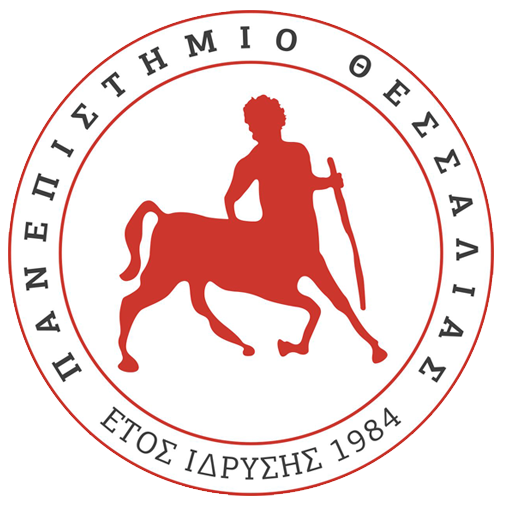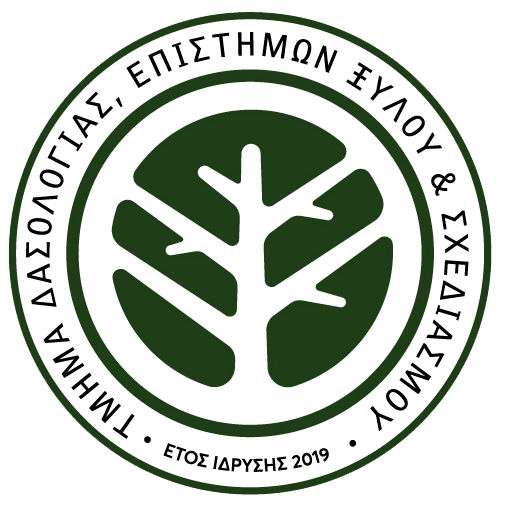The hunting activity in Hellas
P. Birtsas1,2 , C. Sokos1, N. Hasanagas3, C. Billinis4
1Research Division, Hunting Federation of Macedonia & Thrace, Ethnikis Antistasis 173-175, 551 34, Thessaloniki, Hellas (Greece), e-mail: birtsas@teilar.gr
²Wildlife Laboratory, Department of Forestry and Management of Natural Environment, Technological Education Institute of Larissa, End of Mavromichali Str., 43100, Karditsa
3Forest Research Institute, GR 57006 Vassilika- Thessaloniki, Hellas
4Laboratory of Microbiology and Parasitology, Faculty of Veterinary Medicine, University of Thessaly, Trikalon 224, 43100 Karditsa, Hellas
Introduction
In Hellas (Greece), the quarry belongs to the hunter and not to the landowner, while the hunting right is acquired by the edition of hunting license, which is valid for a prefecture or for a hunting region or for the whole country. The most desirable sedentary quarry for the Hellenes hunters is the hare (Thomaides et al. 2007). The hare hunters characterize their activity as quite efficient, due to the benefits they enjoy, and they do not think of replacing it with other countryside activity (fishing, trekking etc.). Simultaneously, they spend at average 69 days and 2000 Euro annually in hare hunting. The commercial consumption based on hare hunting runs into several tens of millions euro at national level (Sokos et al. 2003). The same authors mention that the hare hunters – as wildlife users – believe that measures for improving the quality of hare hunting are necessary. They also declare that they would be willing to pay, as long as the effective use of their money can be assured. In the hunting region of Macedonia and Thrace, hunting, is mainly practiced by the so-called “people class” (workers, farmers and self-employed) (Tsachalidis et al. 2003). In this region, the number of hunting licenses had a peak at hunting season 1985-1986. After the hunting season 1991-1992 the number of hunting licenses was decreasing with a stable rate (Tsachalidis 2003). According to Tsachalidis (2003) this decrease was because of socioeconomic and environmental changes.
In Hellas, the hunting organizations have plaid an important role in the conservation of our natural heritage since the beginning of the 20th century. The so-called “Hunting Associations” have acquired a single Article of Association and have been placed under the supervision of the Forest Service according to the Forest Law of 1929. This status is maintained in general until today. At that time, under the pressure of hunting organizations wildlife wardens with wider conservation duties were employed, endangered species are set under conservation status, quite strict hunting regulations are institutionalized, killing and sale of game species were forbidden and hunting parks were founded – these were the first protected areas. In this way, the hunters are fairly regarded by the society as the first lobby which begun actions for nature protection.
However, today serious deficiencies and weaknesses in hunting administration and management cause consequences to hunting economy and wildlife (Sokos et al. 2002). Some of these are: 1) species hybridization (Barbanera et al. 2009), 2) deficiencies in planning of sustainable harvest for species like roe deer, grey partridge and pheasant (Sokos and Birtsas 2005), 3) the extensive spatial and temporal hunting prohibitions without documentation (Sokos et al. 2002), 4) the inadequate education of hunters (Sokos et al. 2003), 5) the no application of predators control (Sokos et al. 2008a), and 6) the inappropriate releases of reared galliforms and hares (Sokos and Birtsas 2000, Sokos et al. 2008b). Following we describe the two agencies dealing with hunting in Hellas.
The Hellenic Forest Service and its role in the wildlife management
In Hellas, the wildlife management and the particular subject of hunting is one of the sub-disciplines of Forest Science and Forestry. The development of hunting and the wildlife policy lie in the competence of the Forest Service which belongs to the Ministry of Environment. The Direction of Aesthetic Forests, Parks and Hunting is responsible for the management of wildlife and habitats (Arabatzis 2000). Substantially, the Regional Forest Services (Regional Forest Directions, Forest Directions of Prefectures, and local Forest Districts) are responsible for the implementation of the policy and the legislation. Today, there are 83 Forest Districts in the whole country. These are the basic units for the implementation of the forest and natural environment policy and legislation. In every Forest District there is a Hunting Office which is responsible for the management and conservation of the hunted and other wildlife species and their habitats. It is staffed with a forest scientist (5-year study) or a forest technologist (4-year study). Unfortunately, most times he/she is not specialized and informed in hunting issues. Simultaneously, he/she also deals with other tasks apart from hunting.
In a special report on hunting in Hellas by the FAO expert, Pringale, who was appointed by the Special Funds of United Nations in 1972, it was stated that “…the Forest Services fulfill their duties in hunting conscientiously and dynamically. However, they could be more effective in technical design, if their forest scientists and the managers of the services had adequate expertise in wildlife management. Only a few ones have adequate expertise. The above human resources do not receive enough training in hunting. This fact is certainly unpleasant”. We can argue that the same is true for today, 40 years later.
Until recently 22 public gamefarms produced at average 120.000 galliforms and few hares, wildboars and deers (Arabatzis 2000), today their production is even lower. This production and quality of reared quarries fulfil in no case the standards for the establishment of new populations. They are suitable only for “put and take” system (Sokos et al. 2008b), a system which is opposed to hunting traditions of the Hellenes (Sokos and Birtsas 2000). Also, wildlife refuges have been founded. These cover large part of the country. Moreover, there are eight state hunting preserves that cover over 130000 ha, which “constitute state–controlled problematic business, while the services they offer to hunters are of low quality” (Arabatzis 2000).
Unfortunately, the lack of political initiatives for continuing and strengthening of the Forest Service as well as the lack of strategic planning for the development of hunting in Hellas, gradually led the Forest Service to impoverishment in human resources and goal-setting. Simultaneously, they obliged hunting organizations to take their own initiatives concerning guarding, research, planning, and implementation of management plans.
Today, the situation of state agencies and research centers (except for the Higher Education Institutions) can justifiably be regarded as inadequate, as only a few ones deal with wildlife management. It is characteristic that most personnel falsely consider that the conservation of species and areas should replace the strategic planning and management.
The situation of employment of wildlife experts in research institutions which cooperate with the Forest Service and the responsible agencies is as follows:
- At the National Agriculture Research Foundation (Forest Research Institute of Thessaloniki), just a single researcher in ornithology and not especially with the ecology and management of hunting species.
- The Direction of Aesthetic Forests, Parks and Hunting of responsible Ministry does not have any scientist specialized in wildlife and hunting issues.
- The Hunting Offices of the District Forest Services are as a rule staffed with forest scientists or forest technologists who are not adequately specialized in current hunting issues, and without continuous training.
The hunting organizations and their role in the wildlife management
The hunting organizations acquired the form they have today with the forest law of 1969. Since then 250 hunting organizations have been gradually founded in the whole country. These are under the control of the seven Hunting Federations (each one for every hunting region) which constitute the Hunting Confederation of Hellas (Hellenic Hunting Confederation). In this way, a network of organizations has been structured which is supervised by the state, has common Articles of Association and considers the conservation and development of the hunted species population of the country.
In the last years, the Hunting Confederation of Hellas and the other Hunting Organizations have plaid an important role in the development of wildlife management. The Confederation based on the principle of the sustainable use of the hunting resources, designed and already implements projects aiming at monitoring the current situation and the rational management of the hunting, of the hunted species and of their habitats. The most important projects: a. project “Artemis” aiming at the estimation of the annual harvest of quarries, b. the project of habitats improvement which aims at assuring better development conditions of the wildlife species, c. the project for the estimation of the phenology of the migratory hunted bird species, d. the project “Artemis II” aiming at collecting special qualitative data like the proportion of yearlings/adult quarries etc.. The most important achievement of the Confederation is that since 2000 the Body of Federal Wildlife Wardens has been organized and functions with the financial contribution of hunters and with the responsibility of the local hunting organizations. It is composed of 255 wardens. Many of them are forest technologists. A number of about 25 experts on wildlife and hunting management (forest scientists and technologists) are also employed by hunting organizations. These are also supported by lawyers, technicians, and other administrative employees.
Forest scientists and technologists and federal wildlife wardens are continuously informed and trained. They also inform the hunters and the public, help in fostering the awareness of the pupils and participate in actions and projects of collaborating actors (Universities, Research Institutes, Forest Service, Veterinary agencies etc.).
Conclusions – suggestions
Obviously, the lack of political initiatives in Hellas in last decades led the responsible for hunting Forest Service to disorganization and extremely deficient staffing. For this reason, it cannot efficiently deal with hunting issues. Necessary steps are: 1) Setting of goals, 2) Re-structuring of the responsible direction of the Ministry and employment of experts, 3) Re-organizing of the Hunting Offices of the district forest services and training of the staff, 4) Employment of properly educated scientists and technologists, 5) cooperation with research and education institutions, and utmost 6) Cooperation with hunting organizations which today constitute the unique actors with well developed expertise and experience in hunting.
References
Arabatzis G. 2000. Legal framework for the wildlife and hunting in Hellas. Environment & Law 4: 560–572 (in Hellenic with an English summary).
Barbanera F., Marchi C., Guerrini M., Panayides P., Sokos C., Hadjigerou P. 2009. Genetic structure of Mediterranean chukar (Alectoris chukar, Galliformes) populations: conservation and management. Naturwissenschaften 96:1203–1212.
Sokos C., Birtsas P. 2000. Alienation of hunting: the case of “put and take” in shooting preserves. Scientific Annals of School of Forestry & Natural Environment. Aristotle University of Thessaloniki. Volume MC 43: 383–394 (in Hellenic with an English summary). Available at: https://www.agriapanida.gr/test/wp-content/uploads/2004-Alienation-of-hunting.pdf
Sokos C., Birtsas P. 2005. Hunting management of pheasant (Phasianus colchicus) in Hellas. Proccedings of 12th Pan-Hellenic Forestry Congress. Hellenic Forestry Society, 2-5 October 2005, Drama, Hellas, p. 361–372 (in Hellenic with an English summary). Available at: https://www.agriapanida.gr/test/wp-content/uploads/2005-pheasant-hunting1.pdf
Sokos C., Birtsas P., Kastoris A. 2008a. Reduction of predation by fox (Vulpes vulpes). Part A: direct techniques. Proceedings of 6th Pan-Hellenic Rangelands Conference. Hellenic Rangelands and Pasture Society, 2-4/10/2008, Leonidio, Hellas, p. 249–254 (in Hellenic with an English summary). Available at: https://www.agriapanida.gr/test/wp-content/uploads/2008_fox-direct-techniques.pdf
Sokos C., Birtsas P., Papageorgiou N. 2002. Hunting and wetlands: application of management measures or hunting bans? – In: Proceedings of 10th Pan-Hellenic Forestry Conference, 26-29/5/2002, Tripoli, Hellas, pp. 601–613 (In Hellenic with an English summary). Available at: https://www.agriapanida.gr/test/wp-content/uploads/2002-hunting-and-wetlands1.pdf
Sokos C., Birtsas P., Tsachalidis Ε. 2008b. Galliforms release: expediency and choice of techniques. Wildlife Biology 14: 412–422.
Sokos C.Κ., Skordas Κ.Ε., Birtsas P.Κ. 2003. Valuation of hunting and management of brown hare (Lepus europaeus) in rangelands. Proceedings of 3rd Pan-Hellenic Rangelands Conference. Hellenic Rangelands and Pasture Society, 4–6 September 2002, Karpenissi, Hellas, p. 131–139 (In Hellenic with an English summary). Available at: https://www.agriapanida.gr/test/wp-content/uploads/2003-harehunters.pdf
Thomaides C., Logothetis G., Karabatzakis T., Christoforidou G. 2007. Program “Artemis”: a study on hunting harvest. Hunting Confederation of Hellas. (in Hellenic)
Tsachalidis E. 2003. Change in issue of hunting licenses in the area of Macedonia and Thrace during the period 1975-2000. Geotechnical Scientific Issues 14(3): 41–48. (in Hellenic with an English summary).
Tsachalidis E., Galatdidas S., Tsantopoulos G.E. 2003. Personal characteristics of the hunters in the hunting association at Macedonia and Thrace, North Hellas. Ann. Scient. Forest. Dept Vol. N. (in Hellenic with an English summary).



